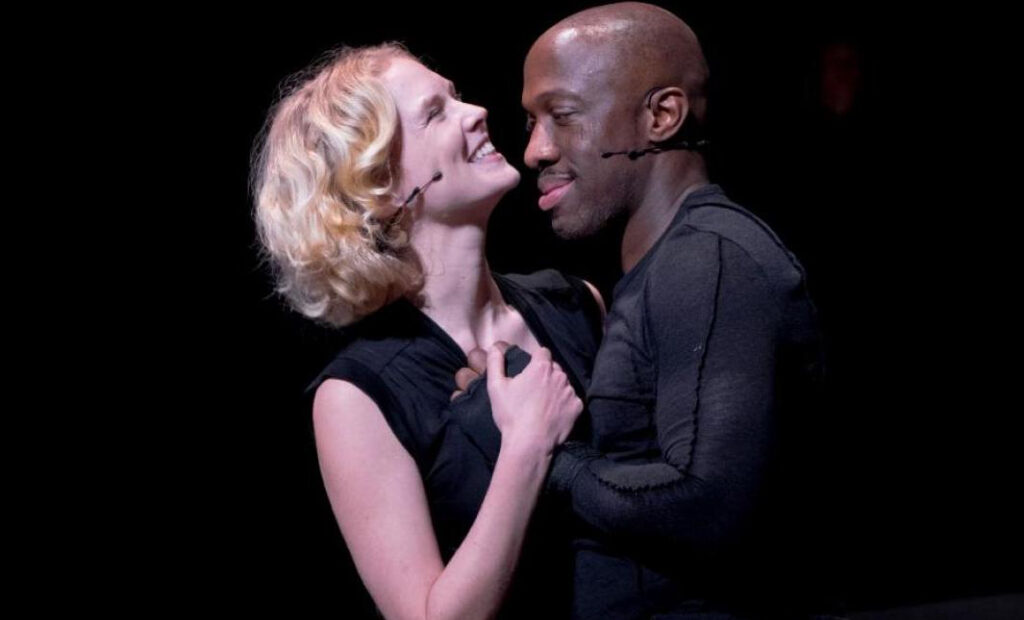Othello at the National Theatre

Clint Dyer’s Othello at the National Theatre breathes new life into Shakespeare’s classic tale by orchestrating the play’s nuances in such a way that it becomes effortlessly modern and fresh. Giles Terera (best known for his performances in Hamilton and Dyer’s Death of England) takes on the titular role. His Othello is both a victim and a perpetrator, in a take that blurs the lines and reshuffles responsibilities.
The famous storyline is as simple as it is powerful: Desdemona (Rosy McEwen) defiantly marries Othello, a Moor, in spite of the general dissent surrounding their union. Iago (Paul Hilton), who is under Othello’s command and has ambitions of power, manipulates the protagonist into doubting his wife’s loyalty by alluding, with increased insistence, that she may be having an affair with Cassio (Rory Fleck Byrne). Driven to madness by unfounded suspicions, Othello falls into Iago’s snare, as do all the characters he lures into his malicious scheme.
The production extracts other layers in the story besides the main theme of jealousy and deception. A focus, not only on Desdemona, but also on her maid Emilia’s (Tanya Franks) perspective, intensifies the tragedy as it exposes the toxic dynamics of domestic violence in their marriages. Racism is of course tackled as well, with an added suggestion that, before reaching a position of power, Othello survived a tragic past as a slave.
Terera and McEwen offer convincing portrayals individually, although they perhaps lack chemistry as a couple. Hilton shines as the antagonist – his Iago is, in the best sense, a textbook villain. His energy keeps the intrigue alive, and his zeal to accomplish his devious plan rubs on to the audience, who remain involved throughout, also thanks to the character’s occasional asides (a dramatic device that can feel forced, but works well here).
The contemporary design by Chloe Lamford and the monochromatic palette of the set and costumes prove very effective in creating an atmosphere of cold detachment, one in which the calculating Iago pulls his strings and controls the unknowing characters like chess pieces. One can also discern visual references to the fascist era: the chorus sits in the background, dressed in black, forming symmetrical patterns and miming in synchrony. This works, not only aesthetically, but acts as a dramatic visual echo to the gestures of the protagonists in the foreground.
This is a strong and satisfyingly dramatic rendition of Othello that has a lot to say, and says it fluently.
Mersa Auda
Othello is at the National Theatre from 23rd November until 21st January 2023. For further information or to book visit the theatre’s website here.

























Facebook
Twitter
Instagram
YouTube
RSS